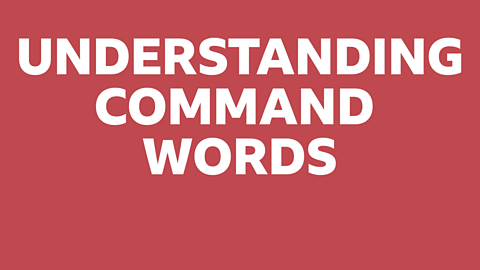This article was first published in July 2018.
Film with GCSE and Nationals revision tips and advice, from exam survivors The Mind Set

Checking on your progress isn't just about using past papers.
- Check out command words carefully to understand what the question is asking of you!
- Use past papers to make sure that you are managing your time well. Set yourself a time frame to complete each question
- Go through past paper answers with a different colour pen to highlight any marks you lose or mistakes you make
- Test yourself. Find out if your revision has been effective by using past papers or ask someone to test you
- If your notes are all bullet points, past papers might be the first chance you have to write in clear and linked sentences!
- Examiner reports can give you an idea of where students went wrong in previous exams
- Repeat your testing – it is important you test yourself more than once. Try it ten minutes after revising a topic, one day after, then a week later.


Command words and their definitions
- Describe: say what you see - no need for reasons
- Explain: give reasons
- Outline: give a brief summary
- Analyse: go into detail
- Compare: what are the similarities and differences?
- Contrast: what are the differences?
- Calculate: use numbers given to work out the value of something
- Define: give the meaning of something
- Evaluate: consider both sides - pros and cons
- Justify: give evidence to explain something
- To what extent: Judge the importance or success of something - has it worked or not
- Argue: present a case with evidence or reasons
- Assess: Weigh up / give an informed judgement
- Comment on: give your opinion on something
- Debate: give different perspectives


If you need support
You should always tell someone about the things you’re worried about. You can tell a friend, parent, guardian, teacher, or another trusted adult. If you're struggling with your mental health, going to your GP can be a good place to start to find help. Your GP can let you know what support is available to you, suggest different types of treatment and offer regular check-ups to see how you’re doing.
If you’re in need of in-the-moment support you can contact Childline, where you can speak to a counsellor. Their lines are open 24 hours a day, 7 days a week.
There are more links to helpful organisations on BBC Action Line.

Revision: How to stay motivated
Just how do you stay motivated whilst revising?

Exam essentials: 3 tips to understand command words
Our exam veterans outline the importance of using command words, and show how you can use them to boss your exams.

Exam essentials: Using past papers
Knowing how to use past papers can improve your performance in an exam.
